Filter by

A Neo-Fatimid Treasury of Books; Arabic Manuscripts among the Alawi Bohras of…
Buku ini menceritakan kisah repositori manuskrip yang ditemukan di seluruh dunia Muslim pra-modern: khizanat al-kutub, atau perbendaharaan buku. Fokusnya adalah pada budaya manuskrip Arab yang tidak diungkapkan dari komunitas Muslim Syiah Asia Selatan yang kecil namun dinamis, yaitu Bohra. Buku ini melihat bagaimana buku-buku yang pernah menjadi bagian dari salah satu repositori buku kekaisaran…
- Edition
- -
- ISBN/ISSN
- 9781474479561
- Collation
- 1 online resource
- Series Title
- Studi Seni Islam di Edinburgh
- Call Number
- 271.095475 AKK n

Predicting Inequality of Opportunity and Poverty in India Using Machine Learning
Buku sumber terbuka ini menggabungkan metode ekonomi tradisional dengan teknik pembelajaran mesin yang lebih baru seperti pohon regresi dan hutan acak untuk menganalisis data dan memberikan analisis mendalam tentang ketidaksetaraan peluang dan kemiskinan di India. Dengan menggunakan data dari survei nasional dan sumber unik seperti gambar satelit malam hari dan data lokasi titik-titik menarik, …
- Edition
- -
- ISBN/ISSN
- 978-981-96-2544-4
- Collation
- online resource ( XI. 169 Pages)
- Series Title
- Studi India dalam Bisnis dan Ekonomi
- Call Number
- 339.460954 MEH p
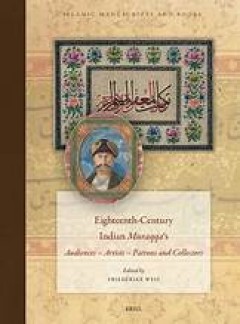
Eighteenth-Century Indian Muraqqaʿs
Fourteen essays and one appendix discuss numerous eighteenth-century Indo-Persianate albums (muraqqaʿs) consisting of folios with paintings, calligraphic pieces, and elaborate decorative margins. These albums – now in Berlin, Baroda, London, Paris, and Manchester – were assembled for or collected by the Mughal nawabs of Awadh (Uttar Pradesh), local elites in Bengal and Bihar, as well as Eu…
- Edition
- -
- ISBN/ISSN
- 978-90-04-71583-7
- Collation
- oer.unej.ac.id
- Series Title
- Islamic Manuscripts and Books, Volume: 23
- Call Number
- -
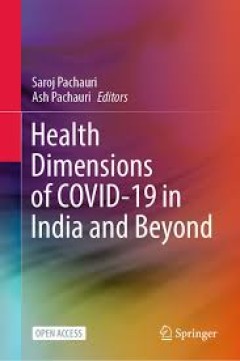
Health Dimensions of COVID-19 in India and Beyond
On January 30, 2020, India reported the first case of COVID-19 in Kerala. The index case was identified as a student returning from Wuhan. As of February 3, 2020, a total of three cases were confirmed in Kerala. However, after a month the number of cases in the country increased dramatically. On March 14, 2020, India reported its first two COVID-19-related deaths. India’s case fatality ra…
- Edition
- -
- ISBN/ISSN
- 9789811673856
- Collation
- XXXIV, 355
- Series Title
- -
- Call Number
- -

Indian Agriculture Towards 2030
This open access book brings together varying perspectives for transformational change needed in India’s agriculture and allied sectors. Stressing the need of thinking for a post-Green Revolution future, the book promotes approaching this change through eight broad areas, indicating the policy shifts needed to meet the challenges for the coming decade (2021-2030). The book comprises of ten…
- Edition
- -
- ISBN/ISSN
- 978-981-19-0763-0
- Collation
- -
- Series Title
- -
- Call Number
- -
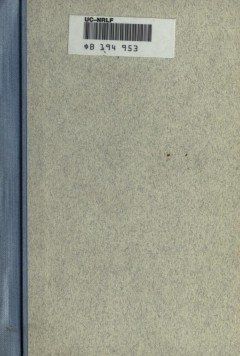
Our earliest attempt at independence
- Edition
- -
- ISBN/ISSN
- -
- Collation
- ii, 146 p. 18 cm
- Series Title
- -
- Call Number
- -
- Edition
- -
- ISBN/ISSN
- -
- Collation
- ii, 146 p. 18 cm
- Series Title
- -
- Call Number
- -
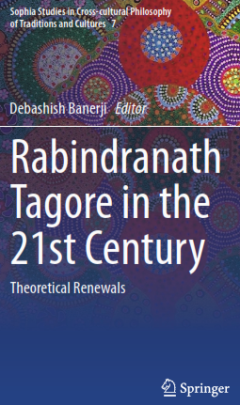
Rabindranath Tagore in the 21st Century; Theoretical Renewals
Volume kritis ini membahas pertanyaan tentang relevansi Rabindranath Tagore bagi wacana pascamodern dan pascakolonial di abad ke-21. Volume ini mencakup kontribusi dari para cendekiawan terkemuka kontemporer tentang Tagore dan menganalisis sastra, musik, teater, estetika, politik, dan seni Tagore terhadap perkembangan teoritis kontemporer dalam sastra pascakolonial dan teori sosial. Para penuli…
- Edition
- 7
- ISBN/ISSN
- 978-81-322-2038-1
- Collation
- -
- Series Title
- Sophia Studies in Cross-cultural Philosophy of Traditions and Cultures
- Call Number
- 891.4 BAN r
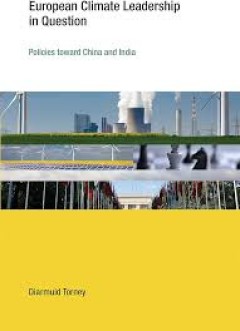
European climate leadership in question :policies toward China and India
The EU has, for a long time, portrayed itself as an international leader on climate change. Previous studies have tended to focus on the characteristics of EU leadership, but have failed to examine the extent to which EU leadership generates 'followship'. This book analyzes EU climate policies towards China and India in order to provide a holistic assessment of EU climate leadership, and makes …
- Edition
- -
- ISBN/ISSN
- 9780262329606
- Collation
- 1 online resource.
- Series Title
- -
- Call Number
- -

India's emerging economy : performance and prospects in the 1990s and beyond
Essays by leading academics, policymakers, and industrialists examine India's economic success in the late 1990s. India's economy over the last decade looks in many ways like a success story; after a major economic crisis in 1991, followed by bold reform measures, the economy has experienced a rapid economic growth rate, more foreign investment, and a boom in the information technology secto…
- Edition
- -
- ISBN/ISSN
- 9780262267885
- Collation
- 1 online resource.
- Series Title
- -
- Call Number
- 330 IND
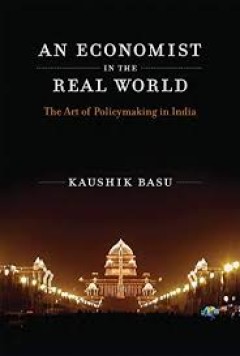
An Economist in the Real World: The Art of Policymaking in India
"In December 2009, the economist Kaushik Basu left the rarefied world of academic research for the nuts and bolts of policymaking. Appointed by the then Prime Minister of India, Manmohan Singh, to be chief economic adviser (CEA) to the Government of India, Basu -- a theorist, with special interest in development economics, and a professor of economics at Cornell University -- discovered the com…
- Edition
- -
- ISBN/ISSN
- 9780262331678
- Collation
- 1 online resource (240 pages) :illustrations
- Series Title
- -
- Call Number
- -
 Computer Science, Information & General Works
Computer Science, Information & General Works  Philosophy & Psychology
Philosophy & Psychology  Religion
Religion  Social Sciences
Social Sciences  Language
Language  Pure Science
Pure Science  Applied Sciences
Applied Sciences  Art & Recreation
Art & Recreation  Literature
Literature  History & Geography
History & Geography